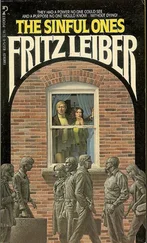Fritz Leiber - The Best of Fritz Leiber
Здесь есть возможность читать онлайн «Fritz Leiber - The Best of Fritz Leiber» весь текст электронной книги совершенно бесплатно (целиком полную версию без сокращений). В некоторых случаях можно слушать аудио, скачать через торрент в формате fb2 и присутствует краткое содержание. Жанр: Фантастика и фэнтези, на английском языке. Описание произведения, (предисловие) а так же отзывы посетителей доступны на портале библиотеки ЛибКат.
- Название:The Best of Fritz Leiber
- Автор:
- Жанр:
- Год:неизвестен
- ISBN:нет данных
- Рейтинг книги:3 / 5. Голосов: 1
-
Избранное:Добавить в избранное
- Отзывы:
-
Ваша оценка:
- 60
- 1
- 2
- 3
- 4
- 5
The Best of Fritz Leiber: краткое содержание, описание и аннотация
Предлагаем к чтению аннотацию, описание, краткое содержание или предисловие (зависит от того, что написал сам автор книги «The Best of Fritz Leiber»). Если вы не нашли необходимую информацию о книге — напишите в комментариях, мы постараемся отыскать её.
The Best of Fritz Leiber — читать онлайн бесплатно полную книгу (весь текст) целиком
Ниже представлен текст книги, разбитый по страницам. Система сохранения места последней прочитанной страницы, позволяет с удобством читать онлайн бесплатно книгу «The Best of Fritz Leiber», без необходимости каждый раз заново искать на чём Вы остановились. Поставьте закладку, и сможете в любой момент перейти на страницу, на которой закончили чтение.
Интервал:
Закладка:
“Well, all right, Phy. But look here, tell me something, honestly. Won’t you—and the others—be a lot happier when you’ve been relieved of all your responsibilities?”
Phy nodded somberly. “Yes,” he said, “we will. but”—his face became strained—“you see—” “But—?” Carrsbury prompted.
Phy swallowed hard. He seemed unable to go on. He had gradually slumped toward one side of the chair, and the pressure had caused the green gasoid to ooze from his pocket. His long fingers crept over and kneaded it fretfully.
Carrsbury stood up and came around the desk. His sympathetic frown, from which perplexity had ebbed, was not quite genuine.
“I don’t see why I shouldn’t tell you all about it now, Phy,” he said simply. “In a queer sort of way I owe
it all to you. And there isn’t any point now in keeping it a secret. there isn’t any danger—”
“Yes,” Phy agreed with a quick bitter smile, “you haven’t been in any danger of a coup d’etat for some years now. If ever we should have revolted, there’d have been”—his gaze shifted to a point hi the opposite wall where a f aint vertical crease indicated the presence of a doorway—“your secret police.”
Carrsbury started. He hadn’t thought Phy had known. Disturbingly, there loomed in his mind a phrase The cunning of the insane. But only for a moment. Friendly complacency flooded back. He went behind Phy’s chair and rested his hands on the sloping shoulders.
“You know, I’ve always had a special feeling toward you, Phy,” he said, “and not only because your whims made it a lot easier for me to become World manager. I’ve always felt that you were different from the others, that there were times when—” He hesitated.
Phy squirmed a little under the friendly hands. “When I had my moments of sanity?” he finished flatly.
“like now,” said Carrsbury softly, after a nod the other could not see. “I’ve always felt that sometimes, in a kind of twisted, unrealistic way, you understood. And that has meant a lot to me. I’ve been alone, Phy, dreadfully alone, for ten whole years. No companionship anywhere, not even among the men I’ve been training in the Institute of Political Leadership—for I’ve had to play a part with them too, keep them in ignorance of certain facts, for fear they would try to seize power over my head before they were sufficiently prepared. No companionship anywhere, except for my hopes—and for occasional moments with you. Now that it’s over and a new regime is beginning for us both, I can tell you that. And I’m glad.”
There was a silence. Then—Phy did not look around, but one lean hand crept up and touched Carrsbury’s. Carrsbury cleared his throat. Strange, he thought, that there could be even a momentary rapport like this between the sane and the insane. But it was so.
He disengaged his hands, strode rapidly back to his desk, turned.
“I’m a throwback, Phy,” he began in a new, unused, eager voice. “A throwback to a time when human mentality was far sounder. Whether my case was due chiefly to heredity, or to certain unusual accidents of environment, or to both, is unimportant. The point is that a person had been born who was in a position to criticize the present state of mankind in the light of the past, to diagnose its condition, and to begin its cure. For a long time I refused to face the facts, but finally my researches—especially those in the literature of the twentieth century—left me no alternative. The mentality of mankind had become— aberrant. Only certain technological advances, which had resulted in making the business of living infinitely easier and simpler, and the fact that war had been ended with the creation of the present world state, were staving off the inevitable breakdown of civilization. But only staving it off—delaying it. The great masses of mankind had become what would once have been called hopelessly neurotic. Their leaders had become. you said it first, Phy. insane. Incidentally, this latter phenomenon—the drift of psychological aberrants toward leadership—has been noted in all ages.”
He paused. Was he mistaken, or was Phy following his words with indications of a greater mental clarity than he had ever noted before, even in the relatively non-violent World secretary? Perhaps—he had often dreamed wistfully of the possibility—there was still a chance of saving Phy. Perhaps, if he just explained to him clearly and calmly—
“In my historical studies,” he continued, “I soon came to the conclusion that the crucial period was that of the Final Amnesty, concurrent with the founding of the present world state. We are taught that at that time there were released from confinement millions of political prisoners—and millions of others. Just who were those others? To this question, our present histories gave only vague and platitudinous answers. The semantic difficulties I encountered were exceedingly obstinate. But I kept hammering away. Why, I asked myself, have such words as insanity, lunacy, madness, psychosis, disappeared from our vocabulary—and the concepts behind them from our thought? Why has the subject ‘abnormal psychology’ disappeared from the curricula of our schools? Of greater significance, why is our modern psychology strikingly similar to the field of abnormal psychology as taught in the twentieth century, and to that field alone? Why are there no longer, as there were in the twentieth century, any institutions for the confinement and care of the psychologically aberrant?”
Phy’s head jerked up. He smiled twistedly. “Because,” he whispered slyly, “everyone’s insane now.”
The cunning of the insane. Again that phrase loomed warningly in Carrsbury’s mind. But only for a moment. He nodded.
“At first I refused to make that deduction. But gradually I reasoned out the why and wherefore of what had happened. It wasn’t only that a highly technological civilization had subjected mankind to a wider and more swiftly-tempoed range of stimulations, conflicting suggestions, mental strains, emotional wrenchings. In the literature of twentieth century psychiatry there are observations on a land of psychosis that results from success. An unbalanced individual keeps going so long as he is fighting something, struggling toward a goal. He reaches his goal—and goes to pieces. His repressed confusions come to the surface, he realizes that he doesn’t know what he wants at all, his energies hitherto engaged hi combatting something outside himself are turned against himself, he is destroyed. Well, when war was finally outlawed, when the whole world became one unified state, when social inequality was abolished. you see what I’m driving at?”
Phy nodded slowly. “That,” he said hi a curious, distant voice, “is a very interesting deduction.”
“Having reluctantly accepted my main premise,” Carrsbury went on, “everything became clear. The cyclic six-months’ fluctuations in world credit—I realized at once that Morganstern of Finance must be a manic-depressive with a six-months’ phase, or else a dual personality with one aspect a spendthrift, the other a miser. It turned out to be the former. Why was the Department of Cultural Advancement stagnating? Because Manager Hobart was markedly catatonic. Why the boom in Extraterrestrial
Research? Because McElvy was a euphoric.”
Phy looked at him wonderingly. “But naturally,” he said, spreading his lean hands, from one of which the gasoid dropped like a curl of green smoke.
Carrsbury glanced at him sharply. He replied. “Yes, I know that you and several of the others have a certain warped awareness of the differences between your. personalities, though none whatsoever of the basic aberration involved in them all. But to get on. As soon as I realized the situation, my course was marked out. As a sane man, capable of entertaining fixed realistic purposes, and surrounded by individuals of whose inconsistencies and delusions it was easy to make use, I was in a position to attain, with time and tact, any goal at which I might aim. I was already in the Managerial Service. In three years I became World manager. Once there, my range of influence was vastly enhanced. Like the man in Archimedes’ epigram, I had a place to stand from which I could move the world. I was able, in various guises and on various pretexts, to promulgate regulations the actual purpose of which was to soothe the great neurotic masses by curtailing upsetting stimulations and introducing a more regimented and orderly program of living. I was able, by humoring my fellow executives and making the fullest use of my greater capacity for work, to keep world affairs staggering along fairly safely—at least stave off the worst. At the same time I was able to begin my Ten Years’ Plan—the training, in comparative isolation, first in small numbers, then in larger, as those instructed could in turn become instructors, of a group of prospective leaders carefully selected on the basis of their relative freedom from neurotic tendencies.”
Читать дальшеИнтервал:
Закладка:
Похожие книги на «The Best of Fritz Leiber»
Представляем Вашему вниманию похожие книги на «The Best of Fritz Leiber» списком для выбора. Мы отобрали схожую по названию и смыслу литературу в надежде предоставить читателям больше вариантов отыскать новые, интересные, ещё непрочитанные произведения.
Обсуждение, отзывы о книге «The Best of Fritz Leiber» и просто собственные мнения читателей. Оставьте ваши комментарии, напишите, что Вы думаете о произведении, его смысле или главных героях. Укажите что конкретно понравилось, а что нет, и почему Вы так считаете.









